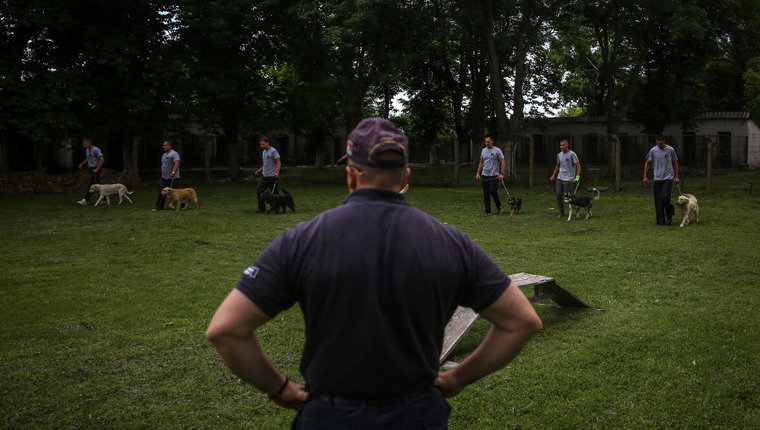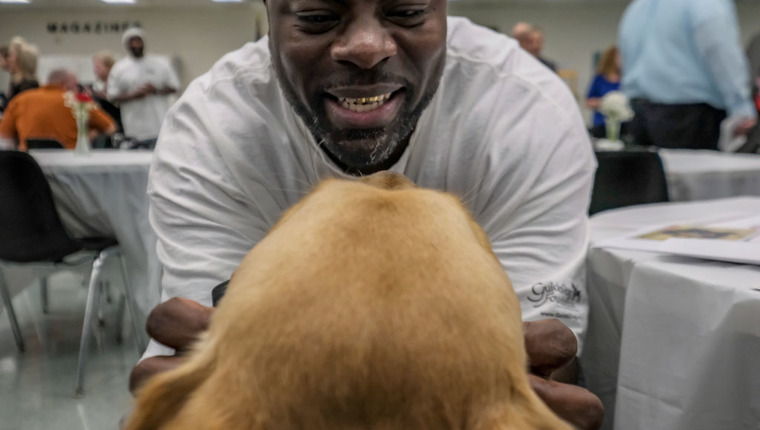
Shelter dogs and incarcerated men find hope through Magic City K9, a Florida-based nonprofit that teaches inmates to become certified dog trainers. Last week (via South Florida’s Local 10), the program hosted an event at the Everglades Correctional Institution (ECI).
Shelter Dogs and Inmates Find Hope
The nonprofit’s director launched her pilot program at the Everglade’s Re-Entry Center in 2017. Dee Hoult is a certified-dog behavior consultant. She also has over 12 years of experience working with incarcerated men. In 2019, Hoult expanded the program. After an interview, Magic City K9 accepts trainees under a 90-day probation period.
Magic City K9 rescues and rehabilitates dogs from shelters that are at a high risk for euthanasia. Hoult usually selects dogs from shelters in Palm Beach and Miami-Dade counties. Typically, the dogs she chooses are often in need of additional discipline. Shelter dogs appear less attractive to potential families if they are not socialized or are unmanageable.
Scott Turner is an inmate and lead trainer for Magic City K9. “When the dogs first get here, they’re aggressive or scared,” Turner says. “After getting constant love and affection, their temperament usually changes.”
On Wednesday, an audience and a judge watched a training session. Inmates walked alongside the dogs, practicing weaving in and out of orange cones. They gave basic commands to the canine students, always rewarding behavior with positive reinforcement.
“We’re learning patience, we’re learning love, we’re learning how to communicate,” said Turner. “As much as we’re rescuing and rehabilitating these dogs, they’re just as much doing that for us.”
Inmates to Become Certified Dog Trainers
The program gives dogs the chance for rehabilitation. Ordinarily, it is difficult to modify animal behavior without dedicated time and attention. Because of the program, the pups have hope to find a forever family. Additionally, inmates learn a new skill that can help them transition to life outside incarceration.
“I am really centered on making sure that I give these inmates, who are going to be released back out into our community, the skills they need to do this as a career when they are released,” said Hoult.
It is a long road for inmates to become certified dog trainers. Trainees must prove they are able to guide the dogs through a four-level module, beginning with basic commands, leash walking, behavioral correction, grooming, and feeding. Program directors administer tests throughout the course of the program to observe progress. To become a lead trainer, certification students must dedicate over 4,000 hours of training.
Inmates train the dogs for four months. Then after this period, the program works to find homes for the dogs. Around 100 dogs come through the program in the course of a year. While spending time with the dogs gives the inmates a skill, it is also rewarding for their well-being and emotional health. For both the inmates and dogs, there is hope on the horizon.









